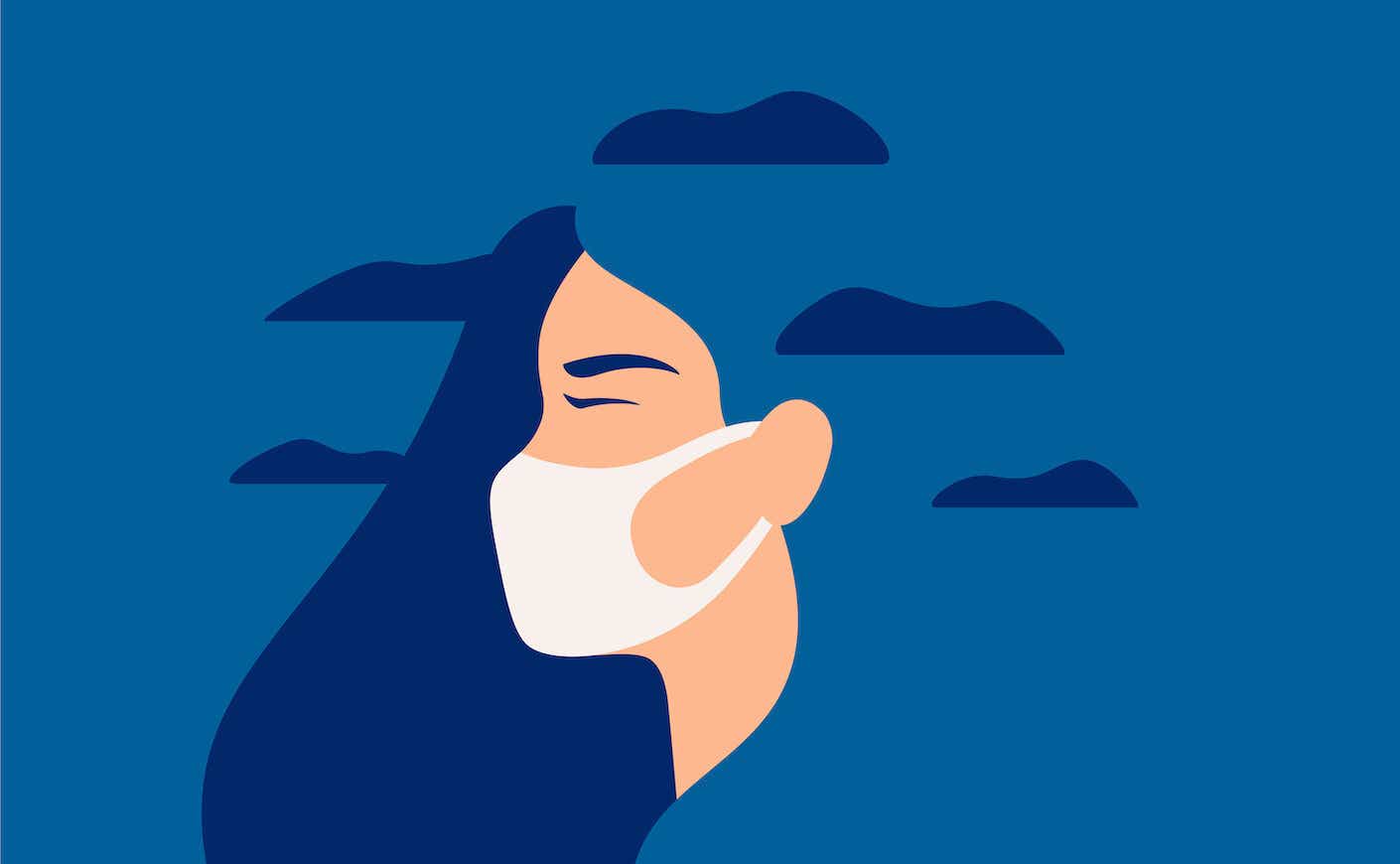Over the past two years, redundancy has become a permanent fixture in our lives. When Covid hit, our homes became our worlds: In one room, out the other, over and over again. If we thought things were routine before that, we quickly realized just how good we’d had it.
We were seeing and doing the same things repeatedly, so why did everything suddenly become harder to remember? If over the past two years, you’ve found yourself forgetting what day it is or why you walked into a room a little more often than usual, you’re not alone. Increased forgetfulness has been a common complaint throughout the pandemic. And research is starting to explain why.
Participants in a preliminary study conducted in the U.K. were given a questionnaire asking them to rate different aspects of their memory. They were asked things like, “Did you forget to tell people something important?” and “Did you start reading something, only to realize that you’ve read it before?”
Researchers found a whopping 80 percent of people said some facet of their memories became worse since the world locked down in 2020. The most common issue reported was having trouble placing when an incident or event happened, the BBC reports.
What does Covid have to do with memory loss?
Scientists are trying to piece together exactly why the pandemic might be causing our memories to short-circuit, although leading experts already have a hunch. Harvard Psychology professor Daniel Schachter, Ph.D., author of The Seven Sins of Memory, tells KCM it has to do with living in that eerie period of the pandemic where most of us were confined to our homes, cut off from our normal activities, canceling our vacations, postponing major life events, and had to resort to binge-watching Netflix day in and day out. Each day began to resemble the next, which is not helpful for remembering events, Dr. Schachter says.
“Memory generally benefits from distinctiveness,” says Dr. Schachter. “It’s just harder to recall specific events when you don’t have those everyday experiences that serve as distinctive markers like you normally would.”
In a paper published last year, Norman Brown, Ph.D., a psychology professor at the University of Alberta, refers to this as the “lockdown dip.” Because of the mundanity of the early pandemic, Dr. Brown theorizes that people will probably remember fewer specific experiences from their lives during this era.
“There’s an expression that surfaced during the pandemic, ‘Blursday,’ that really captures this,” he says. “If every day is the same as the next, then over time you might develop a good general sense of what your life was like during that period, but your ability to recall events is going to be impaired because things are blending into each other.”
Richness and diversity of experience are also just generally good for brain health, says Michael Yassa, Ph.D., a professor of neurobiology at the University of California Irvine. He’s referring to the “use it or lose it” phenomenon. Exposure to novelty and learning new things helps strengthen the connections in our brains and help us build new ones, which is a key part of keeping the mind sharp, especially as we age. But if “you’re not using the brain’s wiring constantly, it’s going to essentially become dysfunctional,” he says.
Dr. Yassa and his team are studying the pandemic’s effects on memory and have found that the cognitive complaints extend beyond just forgetfulness. People are struggling with focus too, he says.
Another factor that could be causing this impairment is the stress and anxiety that for many marked the early pandemic, and still persists today, Dr. Schachter says. Chronic stress has been shown to damage both the hippocampus, a structure in the brain involved in long-term memory formation, and the prefrontal cortex, which is essential for focus and decision-making, says Wendy Suzuki, Ph.D., a neuroscientist at NYU.
The general unease that characterized the early pandemic, the strain of social isolation, fear of contracting the virus, and economic uncertainty all combined to create a perfect storm of chronic stress. Reports of anxiety and depression rose 25 percent worldwide through 2020, according to the World Health Organization.
Is pandemic memory loss permanent?
Stress and the unbearable sameness of lockdown (along with the impact of long Covid and the brain fog that comes with it) could be contributing to our communal amnesia. But as we emerge from the pandemic and life resumes as it once had in the “before times,” will this cognitive impairment reverse — or could we be in danger of becoming permanently forgetful?
Dr. Yassa is trying to figure that out. It is possible, he says, that we won’t bounce back. “But I think it varies a lot from individual to individual.”
What to do about your pandemic memory loss
If you’re forgetting names and dates, or are just feeling a little less sharp than you once were, Dr. Yassa has some basic guidance. Since the pandemic altered many of our sleep patterns, Dr. Yassa recommends nudging yourself back into a solid sleep routine, making sure you’re eating healthy, and getting regular exercise. He also suggests trying to lower your stress levels by meditating or getting out and exploring nature.
“Ensuring that you’re leading a healthy lifestyle can go a long way toward protecting an individual from a lot of these effects.”









